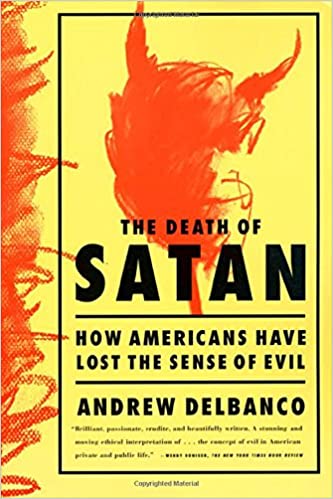By Andrew Delbanco (Trustee; NHC Fellow, 1990–91; 2002–03)

New York: Farrar, Straus and Giroux, 1995
From the publisher’s description:
In a spiritual biography of America, Delbanco shows how writers of the past 3 centuries have depicted evil and how they have tried to defy and subdue it. He shows the strategies by which writers such as Cotton Mather, Jefferson and Lincoln, Emerson and Melville, Thoreau and Whitman, Niebuhr and Trilling, Rachel Carson and Susan Sontag, have recognized and done battle with evil. One way of talking about evil is to demonize and satanize it, understanding evil as something remote. But Satan is sometimes a symbol of our own deficient love, our potential for envy and rancor toward creation. We have always been engaged in a contest between these 2 ways of understanding evil.
Subjects
History / Religion / Literature / American History / American Literature / Evil / Ethics / Intellectual History / Satan /Delbanco, Andrew (Trustee; NHC Fellow, 1990–91; 2002–03). The Death of Satan: How Americans Have Lost the Sense of Evil. New York: Farrar, Straus and Giroux, 1995.